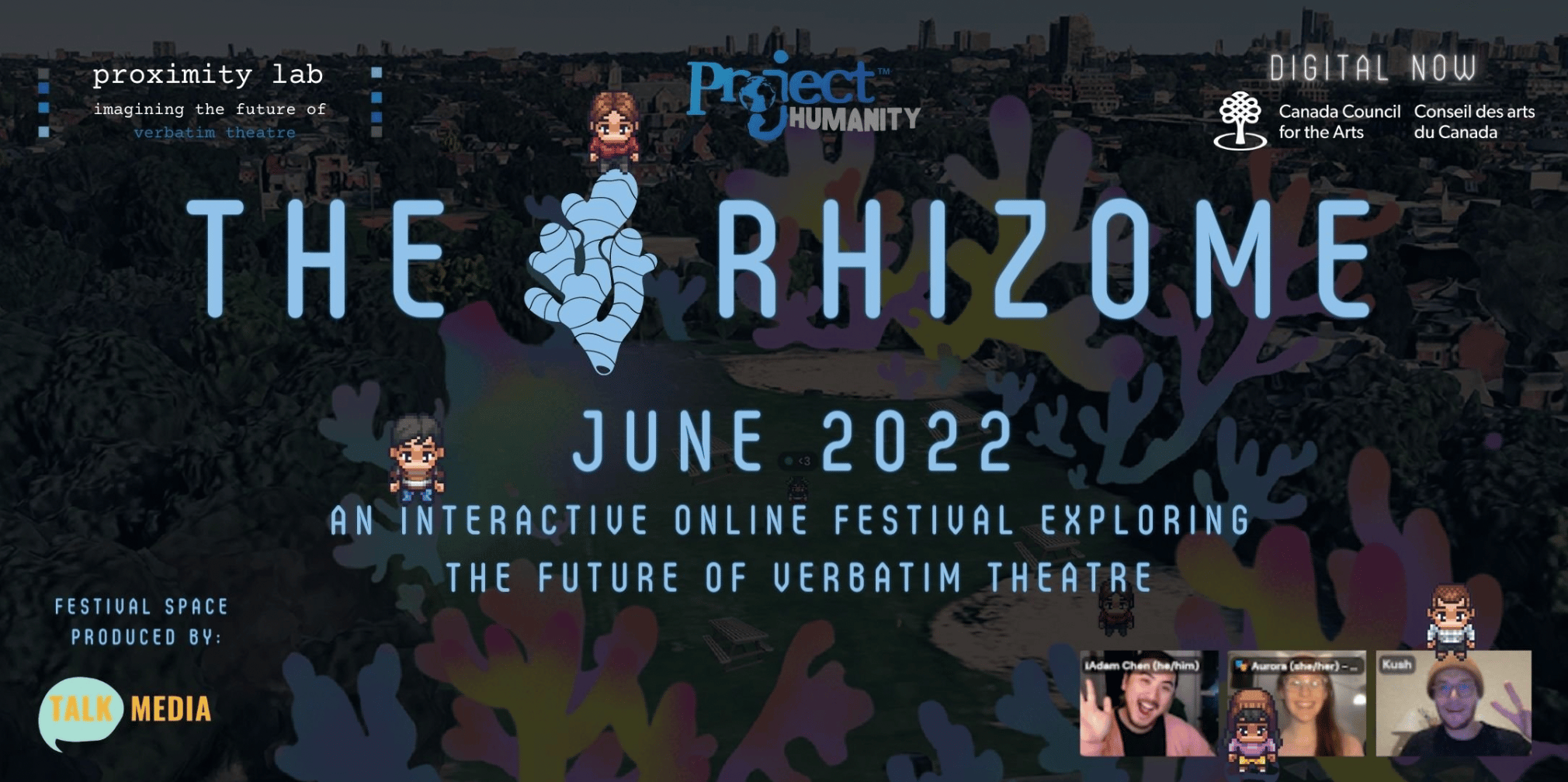“Open your eyes and enjoy the space.”
Project Humanity’s Rhizome Festival was a feat of innovation and a prime example of contemporary storytelling. The digital interactive festival transformed the theatre experience while centering alluring and pertinent stories.
The virtual experience began with Andrew Kushnir, Project Humanity’s artistic director, addressing the audience in a short introductory video. Project Humanity, he says, is “a socially engaged theatre company in Toronto.” In collaboration with the Proximity Lab, they seek to create ‘pandemic-proof’ performances and answer the question: “What is the future of verbatim theatre?”
Verbatim theatre is a form of theatre in which stories are told using real words spoken by real people.
The festival featured the work of four artists who created virtual worlds for the audience to experience through a video-game-style program. Katey Wattam (she/they) brought the idea of the Rhizome to the Proximity Lab; Lucy Coren (she/her) created a digital art gallery in collaboration with Toronto sex workers around the idea of shame; Alten Wilmot (they/he) explored the value of artists in a capitalist system, and Richard Lam (he/him) created a tabletop game which dealt with conflict resolution.
Katey Wattam’s world is dispersed throughout the virtual landscape in the form of breathing exercises for audiences to discover. Wattam’s piece shares the power of ceremony, the beauty of the Rhizome, and Indigenous ways of being and relating through a very sobering and personal telling of their creative process. She describes the Rhizome as “multiple multiplicities put together in a way that has no structure whatsoever” and a way of thinking that “challenge[s] hierarchies and binaries”.
This idea of a seamlessly rugged and chaotic beauty was present throughout the entire experience. This unconventional approach to storytelling deviated from western storytelling and even verbatim theatre conventions. The result was beautifully crafted, refreshing, and captivating stories, presented in a revolutionary way.
Lucy Coren was another highlight of the Rhizome Festival. Coren co-created the virtual art gallery “It’s a Shame” with sex workers in Toronto. They collectively complexified the presentation of sex workers’ identities through authentic and original storytelling. Coren claims that she was merely a curator of the honest stories told by the sex workers.
The “It’s a Shame” gallery consists of four pairs of classic paintings depicting sex workers. To add richness to the simplified and reductionary portrayals of sexworkers, Coren masterfully added modern sex-work essentials such as ring lights and macbooks into each painting. Each pair of paintings also represented a possible answer to a crossroad that the team faced when creating the project. For example, one asked the audience to choose whether the characters should be played by real sex workers or professional actors.
The Rhizome was accessible because of the team’s dedication to creating a safe virtual environment. Team members were online and answered any questions that audience members had. They also helped several people navigate the technology and communicate with other audience members. Staff also made sure to check in with everyone in the audience to ensure they were doing okay. The space was also Queer and Trans friendly, as all of the staff and team, and most of the audience, had pronouns on their name tags.
If the Rhizome Festival is anything like the future of verbatim theatre, then it seems to be a rich and enticing one.









